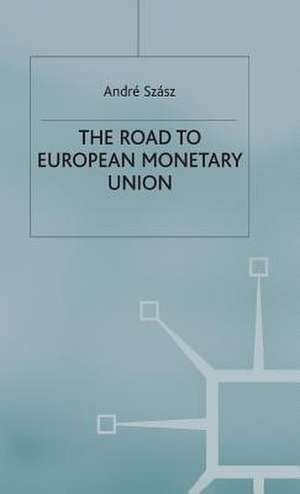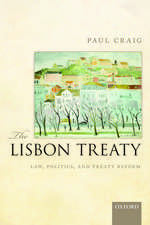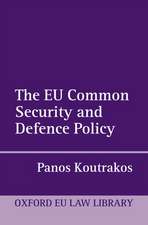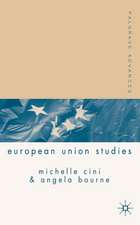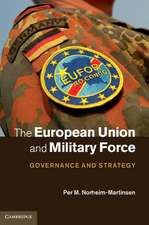The Road to European Monetary Union
Autor André Szászen Limba Engleză Hardback – 15 mar 2000
Preț: 643.34 lei
Preț vechi: 756.86 lei
-15% Nou
Puncte Express: 965
Preț estimativ în valută:
123.10€ • 134.26$ • 103.80£
123.10€ • 134.26$ • 103.80£
Carte tipărită la comandă
Livrare economică 24 aprilie-08 mai
Preluare comenzi: 021 569.72.76
Specificații
ISBN-13: 9780333749739
ISBN-10: 0333749731
Pagini: 272
Ilustrații: XIII, 258 p.
Dimensiuni: 140 x 216 x 14 mm
Greutate: 0.5 kg
Ediția:1999
Editura: Palgrave Macmillan UK
Colecția Palgrave Macmillan
Locul publicării:London, United Kingdom
ISBN-10: 0333749731
Pagini: 272
Ilustrații: XIII, 258 p.
Dimensiuni: 140 x 216 x 14 mm
Greutate: 0.5 kg
Ediția:1999
Editura: Palgrave Macmillan UK
Colecția Palgrave Macmillan
Locul publicării:London, United Kingdom
Cuprins
Introduction The Political Background to European Integration The Rome Treaty (1958) and the Barre-Plans (1968-1969) Economic and Monetary Union: The Hague Summit of 1969 The Werner Report (1970) The Snake (1972-1978) The European Monetary Cooperation Fund The Making of the European Monetary System (1978) The Working of the European Monetary System in the Period 1979-1987 Promoting the ECU The Single European Act (1985-1986) French-German Tussle: Monetary Union Revived (1987-1988) The Delors Report British Opposition The Madrid Summit (June 1989) and its Follow-up German Unification (1989-1990) Monetary Union Economic Union Ratification (1992-1993) Black September (1992) The Collapse of the Old EMS (1993) The Guilder: A Case Study of a Hard Currency Policy Why the Euro? Notes Bibliography Index
Recenzii
'If there were any doubt that monetary union is only the first step towards political union, Andre Szasz buries it with his fascinating account...A former Executive Director of the Dutch Central Bank intimately involved in European monetary affairs for thirty years, he does not display any of the emotion that characterizes both sides of the debate in Britain, and his book is all the more welcome for that. He tells a story of postwar European politics that is remarkable for its consistency.' - Janet Bush, Times Litetary Supplement
Notă biografică
ANDRÉ SZASZ has been involved in European economic integration for all of his professional life. He was born in Indonesia in 1932. He studied economics at the University of Amsterdam. In 1960 he joined the Nederlandsche Bank (the Dutch Central Bank) as an economist. From 1973 until July 1994 he was a member of the Executive Board, responsible in particular for international monetary affairs. During this period he was a member of the Monetary Committee of the European Community, as well as the Deputy for the Dutch Central Bank Governor in the Committee of Governors of the EC. Since 1990 Dr. Szász has been an extraordinary Professor for European Studies at the University of Amsterdam. He is a member of two advisory committees to the Dutch Government on European integration, and a non-executive director of two financial institutions.
